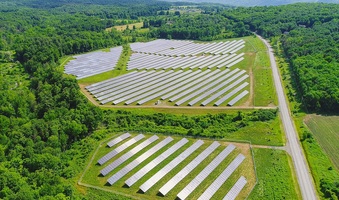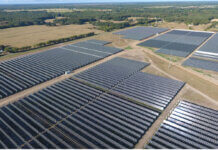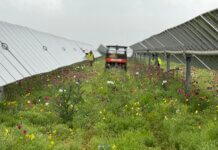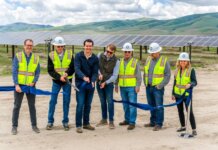Nexamp is developing seven new shared solar projects in Hawaii – three on Hawaii Island, three on Maui and one on Oahu. These projects are part of Hawaiian Electric’s community-based renewable energy (CBRE) program that helps lower electricity costs for low- and moderate-income subscribers who are unable to install rooftop solar.
Hawaiian Electric conducted a competitive bidding process and reviewed proposals from a number of solar and storage developers, selecting Nexamp exclusively to build, own and operate the first round of projects.
“Getting these projects approved is a milestone that reflects the hard work of our entire team to create solutions that address the needs of the communities in which we operate,” says Chris Clark, chief development officer at Nexamp. “Our commitment to accessibility shapes everything we do, from enrolling subscribers to providing economic and employment opportunities. Each of our hundreds of successful projects around the country represents a long-term commitment to the people and businesses of the community.”
The seven solar farms will be the first of their kind under the CBRE program on each island and are expected to be operational by the end of 2025. Kalaoa Solar A and B on Hawaii Island are each 4.3 MW DC (3 MW AC) solar and 13.7 MWh storage. Nā’ālehu Solar, also on Hawaii Island, is a 4.2 MW DC (3 MW AC) solar and 13.7 MWh storage farm. On Maui, Līpoa Solar is 4.2 MW DC (3 MW AC) solar and 13.7 MWh storage, Makawao Solar is 3.5 MW DC (2.5 MW AC) solar and 10.9 MWh storage, and Pi’iholo Road Solar is 3.5 MW DC (2.5 MW AC) solar and 10.9 MWh storage. On Oahu, co-developed with Melink Solar, Kaukonahua Solar is a 7.8 MW DC (6 MW AC) solar farm.
Community solar, or shared solar, enables any resident to subscribe to a solar farm and receive credits on their monthly utility bill that help to reduce their annual electric costs. These specific shared solar farms are reserved exclusively for low- and moderate-income subscribers, ensuring that those who qualify will benefit from the savings of shared solar. Many are renters or apartment dwellers and do not have access to privately owned rooftop solar.
“In addition to bringing savings to those who need them most, these projects will channel new federal funding to Hawaii provided by the recently passed Inflation Reduction Act and help the state further its goal of reducing its dependence on fossil fuels,” adds Clark. “The unique ecological nature and island geography of Hawaii makes this work all the more important as a step in ensuring a clean and sustainable future for the next generation. We look forward to getting started.”




